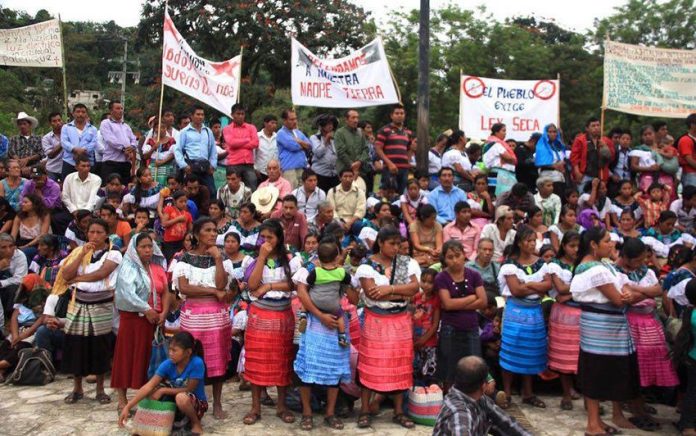Mayan activists on the Yucatán peninsula have raised their voices against megaprojects in the region, including the Maya Train.
A meeting yesterday in Dziuche, Quintana Roo, brought together seven organizations and 33 community leaders from Campeche, Yucatán and Quintana Roo under the slogan “resistance in defense of the territory.”
They contend that the development of megaprojects on the peninsula means stripping their lands, deforestation and contamination of water and food, affects productive activities such as beekeeping, causes health problems and threatens their culture and traditions.
“It is nothing new that they kill our bees, steamroll over our lands or violate our rights; what is new is that the will to defend what is left of our territory has been born. A movement is being born in the Yucatán peninsula,” declared Pedro Uc, an activist and teacher from the region.
“In Campeche, where [the construction of] the Maya Train is going to start, the Chinese are going to acquire — if they haven’t already done so — large expanses of land . . . the first thing the Maya Train will bring will be enormous amounts of Chinese capital,” added Alberto Cahuich, a member of the José María Morelos Maya Indigenous Council, a social organization created and introduced yesterday during the meeting.
He was scornful of the public consultation by the federal government to gauge opinion on the Maya Train project, calling it a farce and stating that most participants in the process knew nothing about it.
Meanwhile, the train has support from some communal landowners in the ejidos that are on the route. At least three of the 30 —Bacalar, Chetumal and Playa del Carmen — have expressed support for the project and offered land for it.
Source: El Universal (sp), El Economista (sp)
